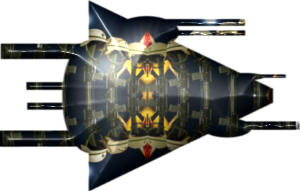39 Year ago: Tonkin Gulf Lie Launched
Vietnam War
Thirty nine years ago, it all seemed very clear.
"American Planes Hit North Vietnam After Second Attack on Our Destroyers; Move Taken to Halt New Aggression", announced a Washington Post headline on Aug. 5, 1964.
That same day, the front page of the New York Times reported: "President Johnson has ordered retaliatory action against gunboats and 'certain supporting facilities in North Vietnam' after renewed attacks against American destroyers in the Gulf of Tonkin."
But there was no "second attack" by North Vietnam -- no "renewed attacks against American destroyers." By reporting official claims as absolute truths, American journalism opened the floodgates for the bloody Vietnam War.
A pattern took hold: continuous government lies passed on by pliant mass media...leading to over 50,000 American deaths and millions of Vietnamese casualties.
The official story was that North Vietnamese torpedo boats launched an "unprovoked attack" against a U.S. destroyer on "routine patrol" in the Tonkin Gulf on Aug. 2 -- and that North Vietnamese PT boats followed up with a "deliberate attack" on a pair of U.S. ships two days later.
The truth was very different.
Rather than being on a routine patrol Aug. 2, the U.S. destroyer Maddox was actually engaged in aggressive intelligence-gathering maneuvers -- in sync with coordinated attacks on North Vietnam by the South Vietnamese navy and the Laotian air force.
"The day before, two attacks on North Vietnam...had taken place," writes scholar Daniel C. Hallin. Those assaults were "part of a campaign of increasing military pressure on the North that the United States had been pursuing since early 1964."
On the night of Aug. 4, the Pentagon proclaimed that a second attack by North Vietnamese PT boats had occurred earlier that day in the Tonkin Gulf -- a report cited by President Johnson as he went on national TV that evening to announce a momentous escalation in the war: air strikes against North Vietnam.
But Johnson ordered U.S. bombers to "retaliate" for a North Vietnamese torpedo attack that never happened.
Prior to the U.S. air strikes, top officials in Washington had reason to doubt that any Aug. 4 attack by North Vietnam had occurred. Cables from the U.S. task force commander in the Tonkin Gulf, Captain John J. Herrick, referred to "freak weather effects," "almost total darkness" and an "overeager sonarman" who "was hearing ship's own propeller beat."
One of the Navy pilots flying overhead that night was squadron commander James Stockdale, who gained fame later as a POW and then Ross Perot's vice presidential candidate. "I had the best seat in the house to watch that event," recalled Stockdale a few years ago, "and our destroyers were just shooting at phantom targets -- there were no PT boats there.... There was nothing there but black water and American fire power."
In 1965, Lyndon Johnson commented: "For all I know, our Navy was shooting at whales out there."
But Johnson's deceitful speech of Aug. 4, 1964, won accolades from editorial writers. The president, proclaimed the New York Times, "went to the American people last night with the somber facts." The Los Angeles Times urged Americans to "face the fact that the Communists, by their attack on American vessels in international waters, have themselves escalated the hostilities."
An exhaustive new book, The War Within: America's Battle Over Vietnam, begins with a dramatic account of the Tonkin Gulf incidents. In an interview, author Tom Wells told us that American media "described the air strikes that Johnson launched in response as merely `tit for tat' -- when in reality they reflected plans the administration had already drawn up for gradually increasing its overt military pressure against the North."
Why such inaccurate news coverage? Wells points to the media's "almost exclusive reliance on U.S. government officials as sources of information" -- as well as "reluctance to question official pronouncements on 'national security issues.'"
Daniel Hallin's classic book The "Uncensored War" observes that journalists had "a great deal of information available which contradicted the official account [of Tonkin Gulf events]; it simply wasn't used. The day before the first incident, Hanoi had protested the attacks on its territory by Laotian aircraft and South Vietnamese gunboats."
What's more, "It was generally known...that `covert' operations against North Vietnam, carried out by South Vietnamese forces with U.S. support and direction, had been going on for some time."
In the absence of independent journalism, the Gulf of Tonkin Resolution -- the closest thing there ever was to a declaration of war against North Vietnam -- sailed through Congress on Aug. 7. (Two courageous senators, Wayne Morse of Oregon and Ernest Gruening of Alaska, provided the only "no" votes.) The resolution authorized the president "to take all necessary measures to repel any armed attack against the forces of the United States and to prevent further aggression."
The rest is tragic history.
Nearly three decades later, during the Gulf War, columnist Sydney Schanberg warned journalists not to forget "our unquestioning chorus of agreeability when Lyndon Johnson bamboozled us with his fabrication of the Gulf of Tonkin incident."
Schanberg blamed not only the press but also "the apparent amnesia of the wider American public."
And he added: "We Americans are the ultimate innocents. We are forever desperate to believe that this time the government is telling us the truth." |

